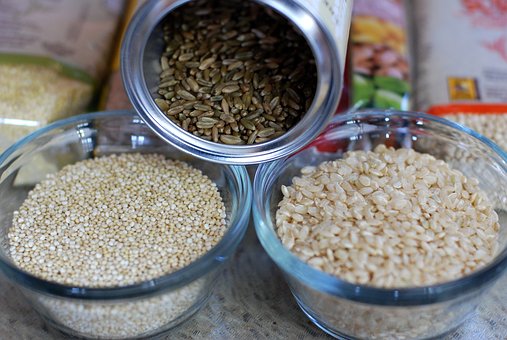Crohn’s disease is a chronic inflammatory bowel disease that affects the digestive tract. It can cause a range of symptoms, including abdominal pain, diarrhea, and fatigue. While there is no cure for Crohn’s disease, there are many treatments that can help manage symptoms, including probiotics. In this blog post, we’ll explore the latest research on probiotics and Crohn’s disease and how they can promote a healthy gut.
What are Probiotics?
Probiotics are live bacteria and yeasts that are beneficial for your gut health. They can be found in a variety of foods, such as yogurt, kefir, sauerkraut, and kimchi, as well as in supplement form. Probiotics work by promoting a healthy microbiome in the gut, which can improve digestion and alleviate a range of digestive issues.
How Probiotics Can Help with Crohn’s Disease
Probiotics can help with Crohn’s disease in several ways:
1. Reducing Inflammation
Inflammation is a key factor in the development of Crohn’s disease. Probiotics can help reduce inflammation by modulating the immune response and promoting gut health.
2. Restoring the Gut Microbiome
Crohn’s disease is associated with an imbalance in the gut microbiome. Probiotics can help restore the balance of beneficial bacteria and reduce the growth of harmful bacteria.
3. Improving Digestion
Crohn’s disease can cause a range of digestive issues, including diarrhea, bloating, and gas. Probiotics can improve digestion by promoting the growth of beneficial bacteria and enhancing the activity of digestive enzymes.
4. Alleviating Symptoms
Probiotics can also help alleviate symptoms of Crohn’s disease, such as abdominal pain and cramping. This can improve quality of life and make it easier to manage symptoms.
The Latest Research on Probiotics and Crohn’s Disease
While the research on probiotics and Crohn’s disease is still in its early stages, there have been several promising studies that suggest probiotics may be beneficial for people with Crohn’s disease.
1. Reduced Inflammation
A study published in the Journal of Clinical Gastroenterology found that a probiotic supplement containing strains of Lactobacillus and Bifidobacterium reduced inflammation in people with Crohn’s disease. The study also found that the probiotic supplement was well-tolerated and had no adverse effects.
2. Improved Quality of Life
A study published in the journal Nutrients found that a probiotic supplement containing Lactobacillus and Bifidobacterium improved quality of life in people with Crohn’s disease. The study also found that the probiotic supplement reduced the need for medication in some participants.
3. Reduced Symptoms
A study published in the Journal of Clinical Gastroenterology found that a probiotic supplement containing strains of Lactobacillus and Bifidobacterium reduced symptoms of Crohn’s disease, including abdominal pain and diarrhea. The study also found that the probiotic supplement improved overall gut health.
Choosing the Right Probiotic for Crohn’s Disease
Choosing the right probiotic for Crohn’s disease is important to ensure that you get the maximum benefits. Here are some factors to consider when choosing a probiotic:
1. Strain
Different probiotic strains have different benefits, so it’s important to choose the right one for Crohn’s disease. For example, Lactobacillus and Bifidobacterium have been shown to be effective in reducing inflammation and improving gut health in people with Crohn’s disease.
2. Colony Forming Units (CFUs)
CFUs refer to the number of living bacteria in a probiotic supplement. It’s important to choose a supplement with an adequate amount of CFUs to ensure that you get the maximum benefits.
3. Quality
Choose a probiotic supplement from a reputable brand that has been tested for quality and purity.
4. Form
Probiotics are available in various forms, including capsules, powders, and liquids. Choose a form that is convenient for you to take and fits your lifestyle.
Incorporating Probiotics into Your Diet
Incorporating probiotics into your diet is easy and can be done through food or supplements. Here are some ways to incorporate probiotics into your diet:
1. Yogurt
Yogurt is a delicious and convenient source of probiotics. Look for yogurt that contains live and active cultures, such as Lactobacillus and Bifidobacterium.
2. Kefir
Kefir is a fermented milk drink that is high in probiotics. It’s also a good source of calcium and protein.
3. Sauerkraut
Sauerkraut is a fermented cabbage dish







